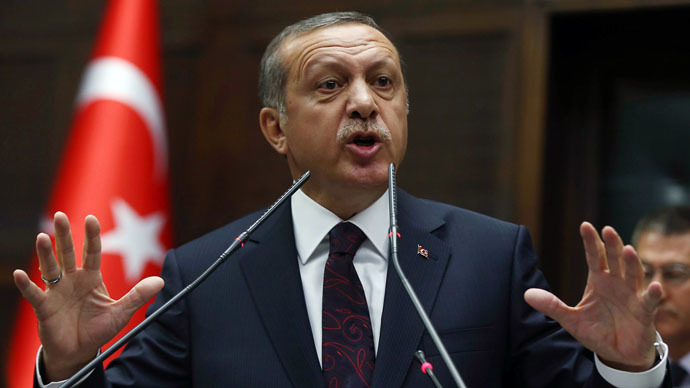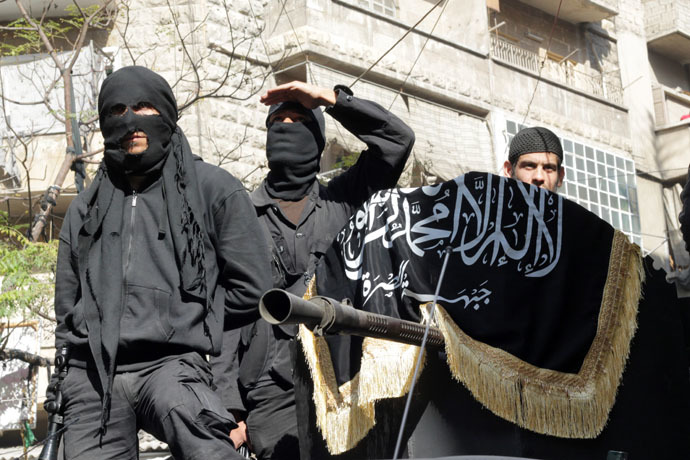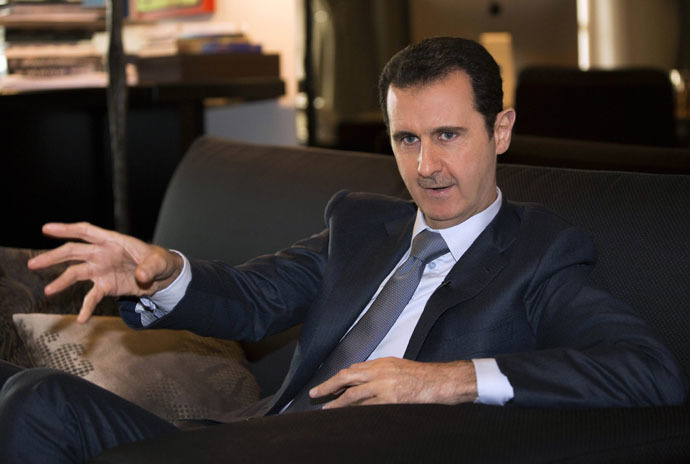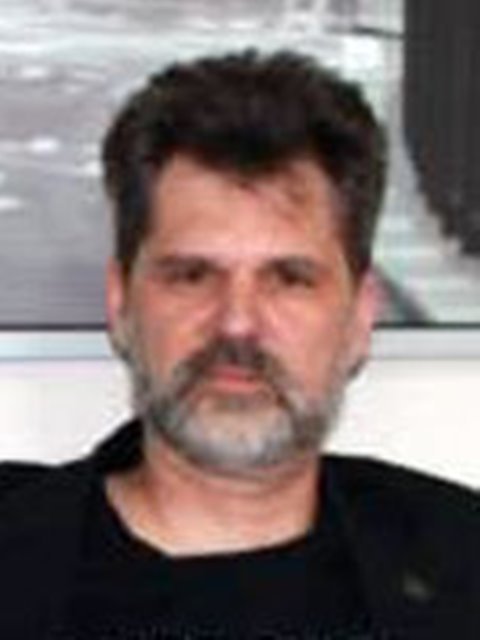The Prez, the FSA, and the Caliph: A Zero Problem Policy?

Prime Minister-turned-President Recep Tayyip Erdogan (aka the Prez) performed a remarkable U-turn some years ago - a U-turn that transformed Bashar Assad from a "brother" of his into a "bloody handed dictator.”
Subsequently Turkey started hosting the opposition Free Syrian Army (FSA) on its soil and so, ‘the Prez’ began his career as the ‘ultimate patron’ of the Syrian opposition.
Foreign Support for the Syrian Opposition
The media portrayed the apparently initially peaceful movement against Assad as a homegrown popular front against an authoritarian regime. In reality though, regional players as well as the US appear to have been the driving force behind the armed opposition, as I earlier explained in great detail. Particularly, the Petrodollar powerhouses of Saudi Arabia and Qatar played big roles in this respect. King Abdullah's Wahhabi dominion has exerted its fair share of influence on the course of current history, particularly if we keep the anti-Soviet Jihad of the 1980s and its unintended outcome on 9/11 in mind. In the present war or Jihad against the Damascus regime, a regime headed by the Alawite or "heretic", as the Saudis would have it, Bashar Assad, the King's men do not even shy away from sacrificing their own sons for the good cause. Video footage that emerged in May 2012, showing "potential suicide bombers" presented at an auction in a hotel in the Saudi port city of Jeddah before being “shipped off to Syria,” as reported by Iran's English-language broadcaster Press TV.
But King Abdullah's involvement goes a lot further than merely sending off sons on martyr missions, money and weapons of Saudi provenance seem to have easily made their way to the battlefields of Syria's not-so civil war as well. The figure of Prince Bandar bin Sultan, coincidentally a close friend of the notorious ‘Dubya’ or Bush, Jr., seems to have done his fair share in this respect. As related by the inimitable Pepe Escobar, "during Ramadan [1434, corresponding to July 2013], it was Bandar Bush who organized the silent acquisition of at least US$50 million in weapons from Israel instantly shipped to the dizzying net of Salafi-jihadi-mercenary gangs supported by the House of Saud.” In fact, in the early days of last February, during the 50th Munich Security Conference, US Senator John McCain publicly expressed his gratitude: "Thank God for the Saudis and Prince Bandar, and for our Qatari friends.”

Turkey, Syria, and the FSA
But in spite of staggering amounts of Petrodollars spent and praise spewed by American war-mongers, the important part played by Syria's northern neighbor Turkey should not be discounted either. As a regional player with wide-ranging ambitions, arguably contingent upon its Ottoman pedigree and a domestic political agenda of Islamic revivalism and/or Sunnification, Turkey under the AKP (or Justice and Development Party) has been extremely supportive of the Syrian opposition since the very beginning. Jonathan Schanzer and Merve Tahiroglu, writing in a report recently published by the neoconservative think tank the Foundation for the Defense of Democracies (FDD), put it like this: "[i]n October 2011 . . . Turkey facilitated the establishment of the Syrian National Council (SNC) in Istanbul. It was an effort to bring together the disparate Syrian opposition factions under an umbrella that would garner assistance from the West. Amidst mounting frustration, Istanbul hosted a March 2012 'Friends of Syria' meeting, where Turkey and the US pledged to set up a framework for further humanitarian and technical aid to be sent to the opposition.” Practically however, the AKP-led government simply allowed the FSA to set up shop on Turkish soil. As a result, the FSA established its headquarters in a refugee camp located in the Turkish province of Hatay, bordering Syria - namely, in the “military” refugee camp known in Turkish as Apaydın Kampı located in the vicinity of Reyhanlı. This small border town colloquially known as ‘Little Syria’ was probably not coindidentally the scene of a devastating twin bomb attack on 11 May 2013. The Apaydın Kampıwas and still is "exclusively reserved for Syrian officers, among them generals and colonels, and their families who had defected,” abandoning Assad's camp and instead moving to the opposition. This camp remains tightly guarded by Turkish security forces to this day. The reporters Gokmen Ulu and Omer Uluhan insist that the camp only houses "AKP supported" Syrian opposition fighters, adding that access is prohibited, and that even parliamentary deputations are refused entry - such as a recent group of opposition MP's belonging to the Republican People's Party (or CHP).
Enter the Islamist Factions: Jabhat al-Nusra, Ahrar al-Sham and the IS
The FSA's 'Declaration of Principles' (published July 2012) states that the FSA leaders "believe in a pluralistic, multi-ethnic, multi-religious society that honors and upholds freedom of expression, thought and conscience.” In this way, the FSA became the West's favorite regime-change tool in Syria. In reality however, the FSA emerged as a rather ineffective opposition grouping employing terror tactics "to kill military and governmental officials" but unable "to hold positions against a regular army,” such as Assad's military apparatus. As a result, the FSA proved unable to defeat the Damascus regime in the medium-term, and "when Assad did not fall, the makeup of the Syrian opposition began to change,” as expressed by Schanzer and Tahiroglu. Aided by the influx of more Petrodollars and anti-Shiite rhetoric, hardcore Islamist factions started appearing on Syrian battlefields. In January 2012, for instance, the extremists of Jabhat al-Nusra (JN) arrived on the scene, closely followed by the men of Ahrar al-Sham in the same month. These Islamist fighters and other emergent Jihadists became the main opposition, arguably heavily supported by Saudi, Qatar and Turkey. For good measure, the West's bogeyman al-Qaeda then also joined the fray, with Ayman al-Zawahiri releasing an eight-minute video clip entitled "Onward, Lions of Syria,” (released 12 February 2012), in which he calls upon believers from "Turkey, Iraq, Lebanon and Jordan" to enroll and be a part of the fight against Assad. The genie had now left the bottle for good and with the "meteoric ascendance" (as described by Schanzer and Tahiroglu) of the extremist group initially called ISIS/ISIL, but now known simply as the Islamic State (or IS), last summer Syria's not-so civil war spread into Iraq as well and has now officially become part of the intra-Islamic Cold War between an extremist Sunni camp and the Shi'ite world.

The IS leader Abu Bakr al-Baghdadi solidified his hold over some oil producing lands in Iraq and Syria, proclaiming a Caliphate in the process, and is now engaged in a seemingly endless battle with Kurdish factions in the now strategic border town of Ain al-Arab (aka Kobani). The self-styled Caliph Ibrahim (Abu Bakr's caliphal name) is now a neighbor of ‘the Prez’ and the presence of this fledgling Caliphate on Turkey's borders leads to the poignant question whether the AKP-led government actively or tacitly supports the IS . . . As I noted elsewhere, FM-turned-PM Davutoglu had no qualms dealing with the group via the intermediary Ahrar al-Sham, through the good offices of Turkey's National Intelligence Organization (MİT), to secure the release of photo-journalist Bunyamin Aygun last January. While earlier this year, following the capture of Iraqi Mosul by the terror group, then still commonly known as ISIS/ISIL, Turkey's consular staff fell into Baghdadi's hands. And then "Turkey negotiated directly with [the] IS in the summer of [2014] to release 49 Turks held by the terrorist group [in late September]. In return, Ankara purportedly secured the release of 180 IS fighters, many of whom returned to the battlefield,” as asserted by Schanzer and Tahiroglu. As a result, it would seem that Turkey no longer needs any intermediary in dealing with the Caliph.
"Antakya is the Peshawar of Syria"
Turkey's borders have allowed easy access to Syria for many willing to fight the Jihad against Assad or for those specifically willing to join the ranks of the caliphal army. In fact, in May last year, Barrack Obama reprimanded then-PM Tayyip Erdogan for "letting arms and fighters flow into Syria indiscriminately and sometimes to the wrong rebels, including anti-Western jihadists.” The Norwegian Defense Research Establishment's Thomas Heghammer put it much more bluntly some seven months later: "Turkey is to Syria now what Pakistan was to Afghanistan in the 1990s. Antakya is the Peshawar of Syria. Turkey is the main passageway for fighters from the West, and from the rest of the region.” While earlier this year, even Obama's deputy publicly acknowledged Turkey's lack of border controls.

In addition, Turkey has also been accused of buying smuggled oil from the IS. Last summer, the opposition MP Ali Ediboglu (a CHP member) made this announcement: members of the IS "have laid pipes from villages near the Turkish border at Hatay. Similar pipes exist also at [the Turkish border regions of] Kilis, Urfa and Gaziantep. They transfer the oil to Turkey and transform it into cash. They take the oil from the refineries at zero cost. Using primitive means, they refine the oil in areas close to the Turkish border and then sell it via Turkey. This is worth $800 million.” At the same time, stories about injured IS fighters traveling across the border to receive medical treatment in Turkish hospitals also abound. The accounts allege that, after successful treatment, these terrorist returns south to resume their gory business of spreading the Caliph's will. One opposition newspaper even supposedly quoted a wounded IS fighter in the Turkish city of Gaziantep as saying that injured Jihadis "come from the border entirely under [Turkish] state supervision,” arguably protected by a police or army escort. According to Sait Gokdere, a representative of the Islamic NGO İMKANDER, "[b]efore our Islamic fighter friends [referring to members of Syrian Jihadist groups] were coming to Turkey" they were only able to receive "disgraceful treatment" in Syrian hospitals, continuing that "[n]ow, thanks to the [AKP-led Turkish] government we have a 75-bed rehabilitation centre in [the Turkish city of] Gaziantep and we come across the border under state supervision.” Whereas, a nurse working at a private clinic in the coastal city of Mersin, identified only by her initials E.G., recently made this statement to the press: “an IS commander named Muhammet Ali R. who was admitted to our hospital on Aug. 7 [2014] was treated at room number 323. Many of his bodyguards kept watch around the hospital. Many other IS commanders like him and soldiers have been treated at our hospital, and returned to the war after the completion of their treatment.”
Zero Problem Policy?
Do these examples of apparent complicity now indicate that ‘the Prez’ is actively cooperating with the Caliph or is a much subtler game being played? The AKP government's extreme anti-Assad stance, coupled with its definite Islamic identity and domestic program of Sunnification, has arguably led the AKP government to adopt lax, if not lenient and outright permissive attitudes towards Sunni extremists battling Assad and/or Turkish individuals willing to help them. A former senior US government official told the FDD's Jonathan Schanzer last month that "[t]hey [meaning Turkey's AKP-led government] weren’t singling out any group to favor, it was more of a laissez faire approach". And, for all intents and purposes, this "laissez-faire approach" has led to the blossoming of a lively Jihadi scene in Syria, a blossoming that has now given rise to the Islamic State and Caliph Ibrahim - either through active or tacit AKP support.
The statements, views and opinions expressed in this column are solely those of the author and do not necessarily represent those of RT.
The statements, views and opinions expressed in this column are solely those of the author and do not necessarily represent those of RT.













